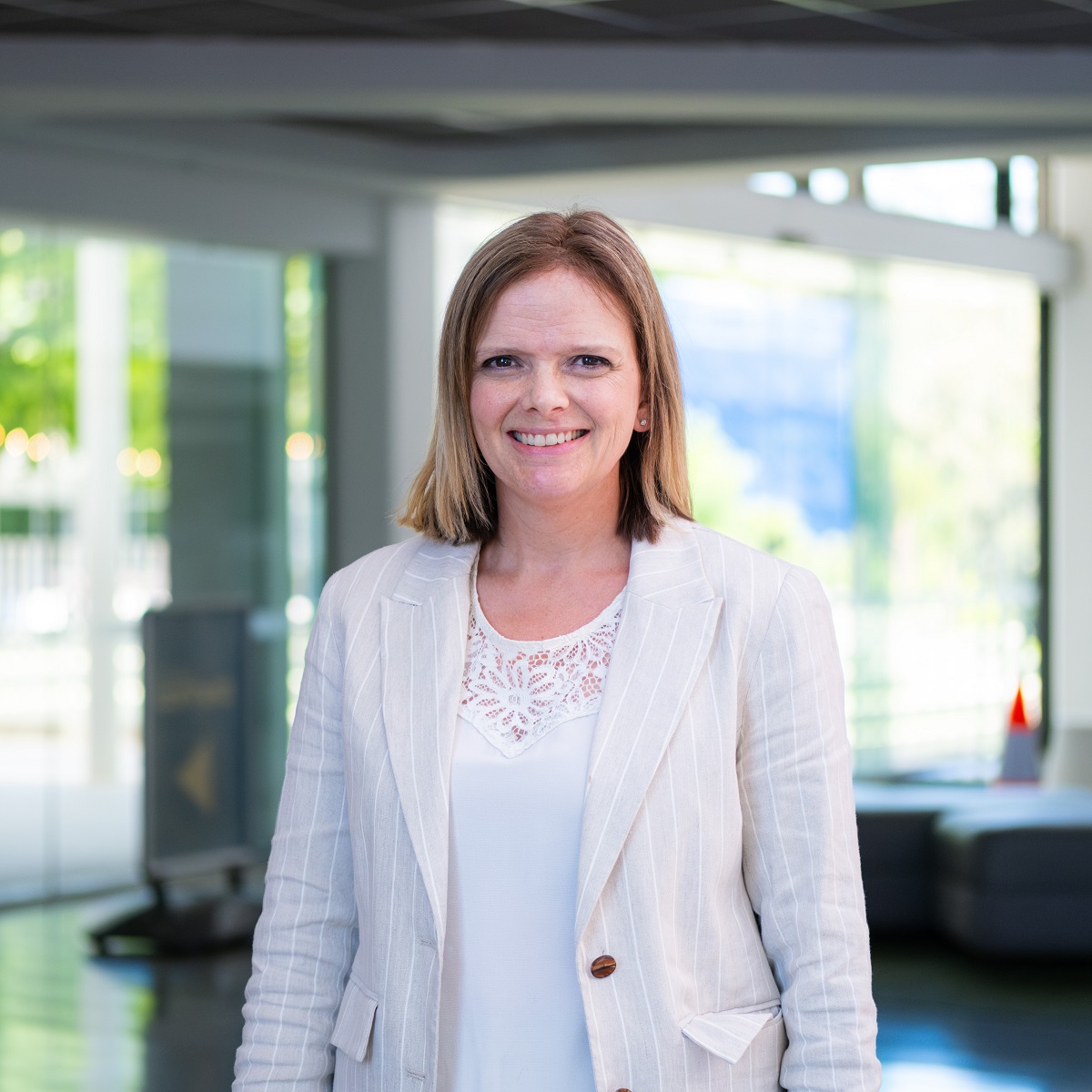
Ahead of World Psycho-Oncology Day on Wednesday 9 April, we sat down with Clinical Psychologist Professor Lisa Beatty to dispel some common myths. She also shared a bit about the beloved inspiration behind her work, and told us all about the newest member of her family.
What is your role here at Flinders?
I am a Professor in Clinical Psychology, in the College of Education, Psychology & Social Work. I do a mixture of applied research in psycho-oncology, teaching into the postgraduate psychology programs, and am Deputy Course Coordinator (Clinical Psychology), so I have a major role in training the next generation of Psychologists. I am also a visiting Consultant Clinical Psychologist at Flinders Medical Centre, where I have a small clinic working with people with cancer and supervising trainee psychologists on placement there. Lots of hats!
Tell us about the important role psycho-oncology plays in cancer care and research.
Cancer doesn’t just affect the body—it has profound psychological and emotional impacts. One in two people with cancer experience significant distress, and approximately one-in-three will experience a psychological disorder (such as depression or anxiety), affecting their wellbeing, quality of life, and even their ability to adhere to treatment. This rate is higher than the general population. They may also experience substantial burden from their cancer’s physical symptoms and treatment side-effects. Psycho-oncology is a vital field of research and clinical care that focuses on understanding these impacts and improving outcomes for people living with and beyond cancer. Some examples of the ways in which psycho-oncology researchers and clinicians work with people with cancer include: Addressing psychological and physical symptoms like anxiety, depression, fear of cancer recurrence/progression, fatigue, pain, and sleep difficulties; supporting medical decision-making and communication with cancer care teams; helping with secondary prevention initiatives, such as addressing lifestyle factors (nutrition, physical activity) that could be enhanced; and developing accessible resources like our Flinders program findingmyway.org.au for those navigating cancer, to address (some of the) barriers to accessing services.
How did you get into this field?
My much-loved auntie had metastatic breast cancer and died when I was in my honours year. She was incredibly resilient, but faced many challenges over her treatment trajectory. This inspired me to find better ways of supporting people living with and beyond cancer, so when the opportunity arose to do my PhD in the area, I jumped at the chance.
What is a misconception around your field that you want to dispel?
Two misconceptions: First, that people living with and beyond cancer should “just be positive” in order to beat their cancer – it can create a lot of stress/pressure and guilt for people when they aren’t able to ‘be positive’, and further prevents them from disclosing how they really feel, or have important conversations with loved ones (as those conversations get shut down with this messaging). Instead, it’s much more helpful to focus on acknowledging / accepting and expressing your feelings, and seeking support when required.
The second is that Psycho-Oncology is an optional luxury/’extra’ in cancer care: We know this isn’t the case – addressing psychosocial concerns improves medical treatment adherence and medical outcomes, as well as improving wellbeing/quality of life.
How do you spend your spare time?
For some time out for myself I love endurance running (the further the better) and reading novels (I do love a cosy crime); for connection nothing beats spending time with my two tween/teen kids and husband, and my extended family. And for pure comfort and joy, spending time with my fur-babies, my Westie Poppy and with our new kitten (who we pick up this Sunday)!
What’s your favourite ice cream flavour?
Baileys and scorched almond from Copenhagen! Yummmmm!

